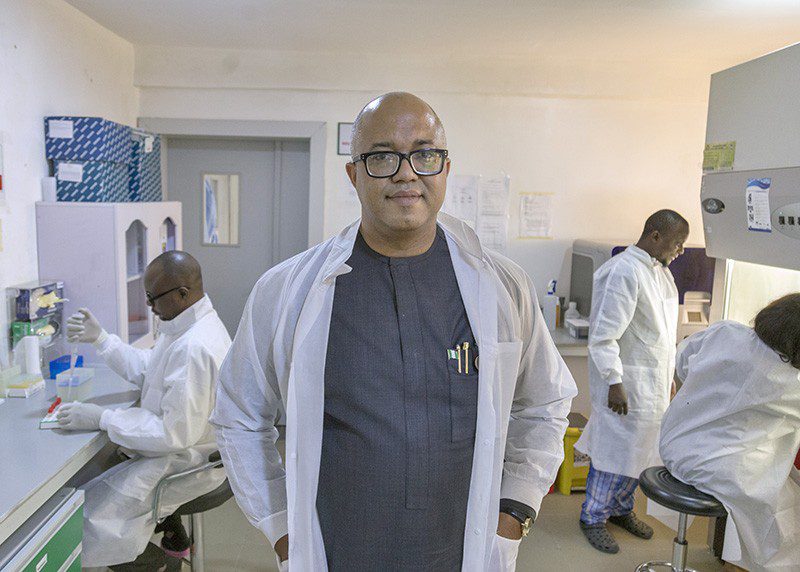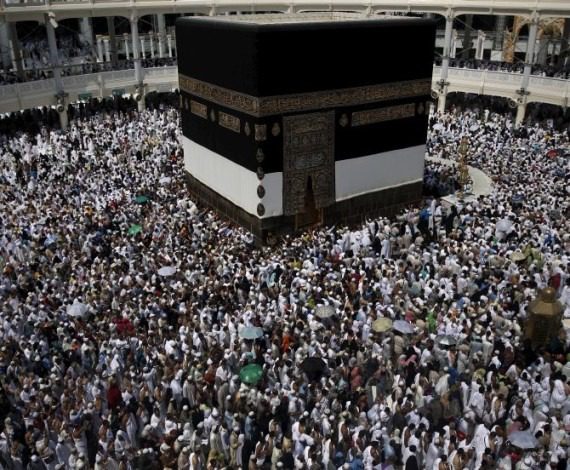National Issues
Tasking NCDC To Function Beyond Fighting COVID-19 -By Isaac Asabor
it is germane to urge the leadership of the NCDC under Dr. Chikwe Ihekweazu, the Director General of the agency, who has for the umpteenth time assured that it is his vision to build the confidence of Nigerians in the NCDC as the body established to protect the health of citizens through information, inclusion and timely response to health concerns.

In terms of its popularity, or rather awareness about its existence, not few Nigerians have the wrong notion that the Nigeria Centre for Disease Control (NCDC) was expediently established to tackle the spread of the yet raging Coronavirus Disease 2019 (COVID-19) that has now mutated to Delta Variant. How wrong they were!
For the sake of clarity, NCDC is the country’s national public health institute, with the obligation to champion the readiness, detection and response to infectious disease outbreaks and public health emergencies. The salutary initiative that culminated into the establishment of the NCDC commenced in 2011 when certain departments in the Ministry of Health, including the Epidemiology Division, the Avian Influenza Project and its laboratories; and the Nigeria Field Epidemiology and Laboratory Training Programme (NFELTP) were synergized to form the nub of the agency by virtue of the Bill for an Act to establish it, thereby necessitating the need for President Muhammadu Buhari to append his signature to the Bill in November 2018.
As further gathered, “The mission for the NCDC (2017-2021) is ‘To protect the health of Nigerians through evidence based prevention, integrated disease surveillance and response activities, using a one health approach, guided by research and led by a skilled workforce”, while its core functions cut across the prevention, detection, and control of diseases of public health importance together with the task to coordinate, scrutinize systems to collect, analyze and interpret data on diseases of public health importance.
Added to the foregoing functions, the agency has the mandates to render support the 36 States that make up the federation as a way of responding to small outbreaks, and lead the response to large disease outbreaks. In the same vein, it is constitutionally charged with the responsibilities to develop and maintain a network of reference and specialized laboratories, conduct, collate, synthesize and disseminate public health research to inform policy and spearhead Nigeria’s engagement with the international community on diseases of public health relevance.
At this juncture, it is germane to urge the leadership of the NCDC under Dr. Chikwe Ihekweazu, the Director General of the agency, who has for the umpteenth time assured that it is his vision to build the confidence of Nigerians in the NCDC as the body established to protect the health of citizens through information, inclusion and timely response to health concerns.
In the same vein, it is worrisome to know that the World Health Organization (WHO) has expressed its concern over the surge of Ebola Disease case suspected in Ivory Coast.
As conveyed by France24; an international news platform in its reportage dated August 18, 2021, and titled “WHO ‘very concerned’ as second Ebola case suspected in Ivory Coast”,
As the report goes, “The UN health agency said Tuesday that a second suspected case of infection by the deadly Ebola virus had been detected in Ivory Coast.
“World Health Organization (WHO) spokesman Tarik Jasarevic said that as of Monday, there had been one confirmed and one suspected case, with nine contacts identified so far. No deaths have been reported.
He said the WHO was “very concerned” about the ability of the virus to spread in the West African country’s economic hub Abidjan, with a population of more than four million.
“Ebola, which is transmitted through close contact with bodily fluids, causes severe fever and, in the worst cases, unstoppable bleeding.
“The confirmed case has been identified as an 18-year-old from Guinea who travelled overland, arriving in Abidjan last Wednesday aboard a bus. When she left Guinea, she was already exhibiting symptoms that continued to intensify.
“She was admitted to a hospital on Thursday with a fever and is currently receiving treatment.
“Preliminary investigations and genomic sequencing to identify the strain show that it is likely the Zaire strain of the virus,” Jasarevic told AFP, saying that “Further investigations are required to confirm these early results.”
He added that the strain was behind a four-month-long Ebola outbreak that claimed 12 lives in Guinea earlier this year, which was declared over on June 19, even as he explained that the same strain killed more than 11,300 people mostly in Guinea, Liberia and Sierra Leone between 2013 and 2016.
As to the bid for the UN agency to commence the identification of contacts, Jasarevic said there was “no indication” that the case in Ivory Coast was linked to the cases in Guinea, and noted that Ivory Coast began vaccinating high-risk populations within 48 hours of the report of the confirmed case. In the same vein, Ivorian Health Minister, Pierre Demba said residents in the Deux Plateaux neighbourhood of Abidjan were among those vaccinated.
“We know that the patient stayed here (at Deux Plateaux) before going to the hospital, so all the people around who are the contact cases had to be vaccinated,” said Demba, while Jasarevic assured, “We expect to reach 2,000 people in the next few days”. He added, including those who travelled with the infected young woman and those who were in contact with those travelers.
As further reported by the news platform, WHO vaccine doses positioned in Guinea have now been moved to Ivory Coast, and there are now 5,000 doses in the country, 3,000 doses of a Johnson & Johnson vaccine and 2,000 doses of a Merck jab.
It also reported that experts are using the so-called ring vaccination strategy, administering doses to people who have come into contact with a confirmed Ebola patient, as well as first responders and health workers.
France 24 recalled that the raging Ebola case in Ivory Coast is the third in the year, after the Democratic Republic of Congo and Guinea, and added that it is the first known case of Ebola in Ivory Coast since 1994, and added that regional health officials said they were working to track down people who may have been in contact with her in her home region in the north of Guinea.
Ostensibly throwing insight to what preemptive measures were taken, a health director, with an Isolation Centre, Mamadou Hady Diallo, told the AFP, that the first contact travelled more than 1,500 kilometres (930 miles) by bus to reach Abidjan, and that “Currently all members of her family are with us at the isolation centre” and assured “We are continuing investigations to identify the contacts.”
At this juncture, it is expedient to urge the leadership of the NCDC to put strategies in place towards the prevention, detection and monitoring of the diseases as a way of warding it off from Nigeria.




















